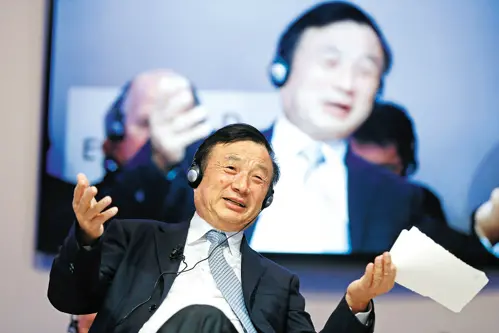Huawei has filed a lawsuit against Samsung Electronics in a U.S. court for alleged smartphone patent infringement.
The Chinese smartphone maker said on Tuesday that it filed the suit in a northern California district court as well as a court in Shenzhen, China, accusing Samsung of infringing 11 of its communication-related patents.
This is the first time a Chinese smartphone maker from a manufacturing culture predicated mostly on copycatting has sued a firm in a more advanced economy.
Huawei claims Samsung stole technologies linking smartphones with relay stations via LTE, as well as security technology.
The suit says most of Samsung's smartphones from the Galaxy S2 to S7 illegally used Huawei's patented technologies. Samsung is considering a counter suit.
The move demonstrates just how much technology Chinese companies have amassed in a short period. Huawei began as a communications equipment manufacturer in the 1980s and invested more than 15 percent of its annual sales into research and development, growing to become one of the world's top three communications equipment makers along with Nokia of Finland and Ericsson of Sweden.
It is now the world's third-largest smartphone maker after Samsung and Apple and last year ranked first in the number of patents it filed with the World Intellectual Property Organization with a whopping 3,898.
The two companies held talks over a cross-licensing agreement by which each side can use the other's patented technologies. But the talks broke down and Huawei is taking the matter to court.
An executive at Huawei's Korean operation said, "Huawei has signed cross-licensing agreements with Apple, Nokia and other major IT companies. We urge Samsung to take part in negotiations."
Huawei appears to have prepared meticulously for the lawsuit. Last year, it sent out 50,000 of its patents to experts in China, Europe and the U.S. for analysis and compiled a list of alleged violations by rivals.
Kim Joo-mee, an intellectual property lawyer at Rothwell, Figg, Earnst & Manbeck in Washington D.C., said, "Huawei talked to a lot of attorneys in the U.S. in order to prepare for its U.S. lawsuit and has a strong chance of winning."
Samsung, meanwhile, plans to counter-sue and is gathering information on similar legal disputes.
Experts do not expect this lawsuit to drag on for years like the one between Samsung and Apple. One said the current suit concerns standard patents that are essential in manufacturing smartphones, so violations can be clearly distinguished. The Apple-Samsung suit, by contrast, was mostly about design.
Huawei and Samsung could settle out of court. Not only is Huawei a major client of Samsung, buying more than W1 trillion worth of memory chips annually, but its vice president William Plummer said it is better to resolve disputes through negotiations rather than a lawsuit. That suggests the suit is a strategic move in negotiations rather than an end in itself.
(THE CHOSUNILBO)
 简体中文
简体中文



